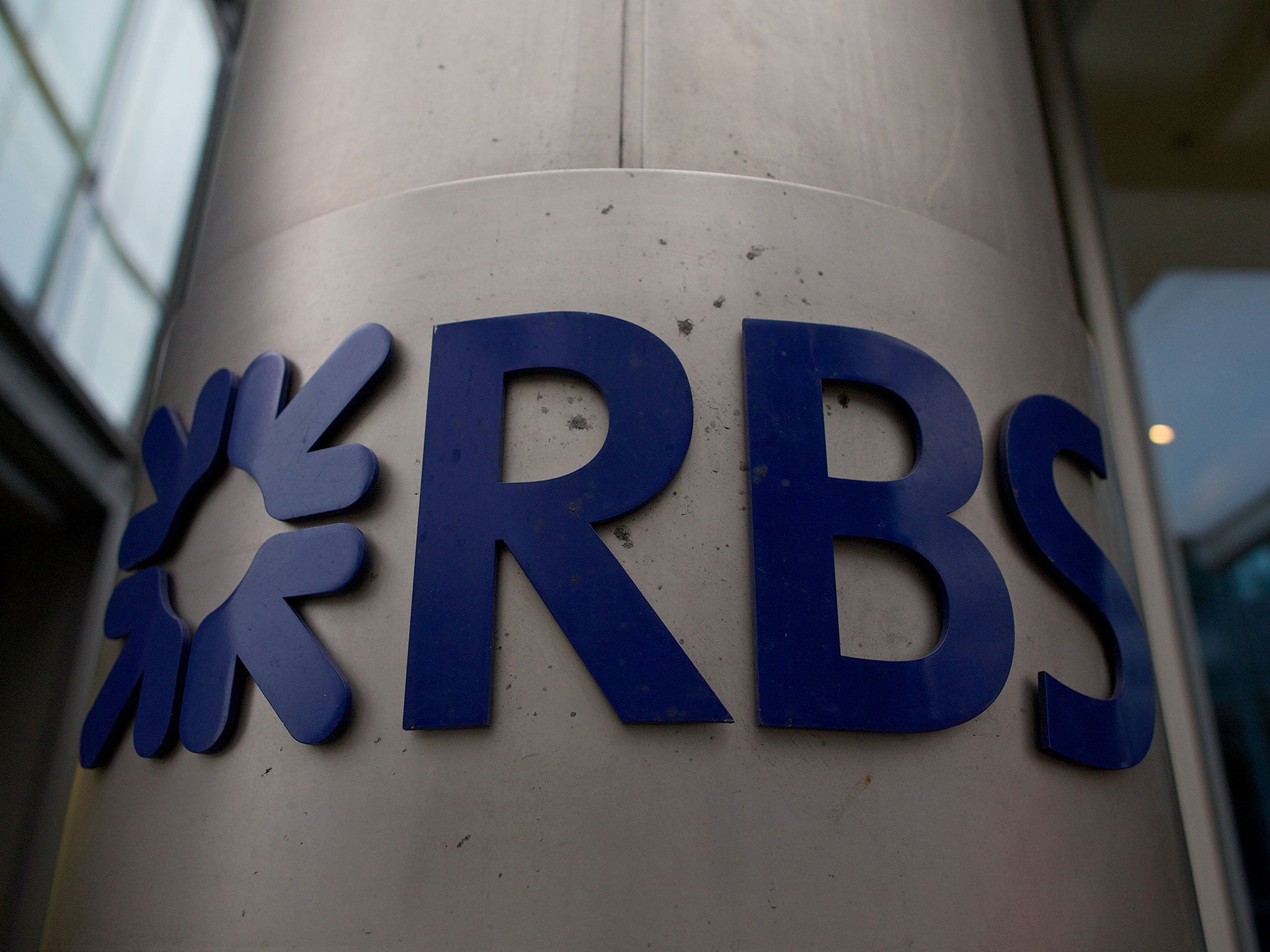Royal Bank of Scotland executives must be held to account over small business scandal
The pressure is on the Financial Conduct Authority to act in the wake of the latest revelations about the activities of the bank's Global Restructuring Group, which dealt with troubled business borrowers

Royal Bank of Scotland squeezed businesses to boost profits, the BBC said as it unveiled a series of leaked documents in collaboration with Buzzfeed, and guaranteed yet another uncomfortable week for the bank's bosses.
Why, then, didn’t the shares move by much? They fell a bit, but all the UK banks were in negative territory on Monday morning with the exception of HBSC. The stock's decline wasn't out of step with either Barclays or Lloyds, neither of which have any exposure to the scandal. Traders, in effect, shrugged their shoulders. Partly it is because the revelations didn’t tell us anything terribly new.
Don’t get me wrong, I’m not casting aspersions on the story. It’s a great piece of work that casts a very unflattering light on the way RBS's Global Restructuring Group handled struggling small business clients. Emails talking of a “dash for cash” and the lineage of bonuses to it make for ugly reading.
But we already knew that RBS had treated some small business customers very badly.
The GRG scandal started to gather steam after Government adviser Lawrence Tomlinson penned an incendiary report into it while serving as “entrepreneur in residence” at Vince Cable’s Business Department at the beginning of 2014.
More critical reports about bank’s handling of small businesses followed, including a review by Clifford Chance that was commissioned by the bank and that said there was no systemic effort to defraud business clients.
The Treasury Select Committee held several eye-opening hearings that didn’t reflect at all well on the bank’s culture in the years after the financial crisis. The Financial Conduct Authority demanded a skilled person’s review into the affair, with law firm Mazar's and Promontory, a financial services consultancy, called upon to undertake the work. A draft was handed to the regulator in April, the final version landed in the last few weeks.
By August RBS had shut the unit and announced the departure of its boss, Derek Sach, the last surviving lieutenant of Fred Goodwin. He had been accused of being wilfully obtuse before the Treasury Committee and had to pen a letter apologising along with then RBS deputy chief executive Chris Sullivan, who departed early in 2015.
There was more besides as the scandal continued to percolate and small businesses who had suffered as a result of their dealings with the GRG started calling their lawyers.
Now, the FCA has argued that it can’t rush things with such a complex and difficult case. Eminently sensible, you might think. On the other hand, how much time does the FCA need to make a judgement on a scandal that is now coming to the end of its third year? These events took place more than two years ago after all, which helps to explains the muted reaction of the shares. The markets are well aware that there might be a cost and have priced it in.
The real value of the latest story is not so much in what it reveals, hugely embarrassing to the bank though that is, but in the heat it has injected into a scandal that was fading from the public’s view. It should serve to hold the feet of the FCA’s bosses to the fire.
When regulators talk about how complex a case is, it is sometimes because that is true and sometimes because they don’t really want to do anything and hope that by kicking it into the long grass they can forget about it. That's not going to be easy when it comes to this one. Not now.
I’m not seeking to downplay the difficulties faced by the FCA. Bringing disciplinary action against anyone involved in the GRG affair will be hard, not least because the business of lending to small businesses was not regulated in the years following the financial crisis, when there was a step change in GRG’s activities and in the number of loans it was handling.
But neither were the setting of Libor interest rates and foreign exchange rates regulated. Watchdogs got results in both cases.
Business news: In pictures
Show all 13This case is more important than either. The arcane games traders played with Libor and foreign exchange were disgraceful. But the impact on the man in the street is hard to quantify and probably relatively limited. As many people may have gained as lost.
GRG being run as a profit centre, putting the squeeze on small firms, linking bonuses to a dash for cash. There’s nothing arcane about that. It's ugly. It’s certainly immoral. But illegal? Or in breach of the regulator’s rules and principles? That isn’t clear. The FCA should make it so by putting cases to the test. Its credibility will be at stake if it lacks the will to do so.
Subscribe to Independent Premium to bookmark this article
Want to bookmark your favourite articles and stories to read or reference later? Start your Independent Premium subscription today.

Join our commenting forum
Join thought-provoking conversations, follow other Independent readers and see their replies